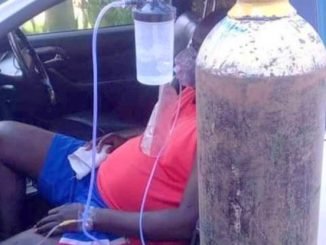
Kampala, Uganda | URN | Government of Uganda has received 3.8 million doses of bivalent oral polio vaccine (bOPV) to support ongoing routine immunization services throughout the country.
The 3,842,000 bOPV doses that were procured by UNICEF, with funding from government, arrived at Entebbe International Airport via an Emirates Airline cargo flight on Friday 24, April 2020.
The doses are expected to last for at least six months and will be administered to about 900,000 children below the age of one year.
According to a joint statement from UNICEF and Ministry of Health, a child receives three doses of Polio vaccines before they celebrate their first birthday.
Further, 810,500 doses of Pentavalent vaccines also procured by UNICEF with funding from Gavi, the Vaccine Alliance, are expected to arrive in the country on Tuesday 28, April 2020.

Pentavalent vaccine is a combination of five vaccines in one: diphtheria, tetanus, whooping cough, hepatitis B and Haemophilus influenza type b (the bacteria that causes meningitis, pneumonia and otitis) and will also be administered to children under the age of one.
The polio vaccines were received by Dr Alfred Driwale, UNEPI programme manager and Noreen Prendiville, UNICEF deputy representative at Entebbe International Airport.
Dr Driwale said that while there are ongoing difficulties resulting from COVID-19 pandemic, parents are encouraged to make sure that their children receive their routine immunization while following the ministry of Health guidance on how to continue accessing health services and prevent themselves against COVID-19.
“We want to encourage parents and guardians to take their children for routine immunization at any nearby health centre. The vaccines are available, and the health workers are ready to immunize children,” Dr Driwale said.
Prendiville said even with the COVID-19 pandemic, parents and government must ensure children are protected against those diseases for which vaccines already exist, including polio, measles, rubella and tuberculosis.
“Immunization is one of the most effective public health interventions and is key to end vaccine-preventable child deaths and giving children a chance to grow up healthy and reach their full potential,” Prendiville said.
Read Also: Parents decry lack of consent for measles-rubella immunization campaign
National Medical Stores (NMS), the body mandated to procure, store and distribute essential medicines and medical supplies to all public health facilities in the country, will distribute the immunisation vaccines to all districts in the country.
In 2019, close to 8 million children under 5 received a booster dose of bivalent oral polio vaccine to reduce the risk of polio importation from neighbouring countries. Uganda last had a polio case in 2010.



